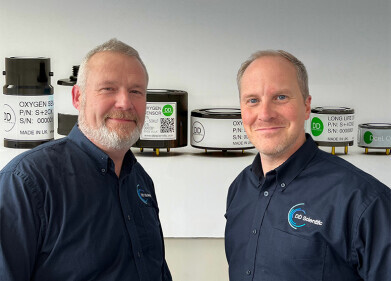Business News
Can Fashion Be Made Greener?
Oct 26 2017
The fashion industry is the joint fifth most polluting industry in the world, tied alongside livestock. With over a million tonnes of new clothing purchased last year in the UK alone, it’s not difficult to see why fashion has such a colossal carbon footprint. But can it be made greener?
As such a large and sprawling industry which incorporates various other ones (including all four in the list above it), making small but significant changes to our clothes shopping habits could do wonders for Mother Earth. Here’s why and how.
Fashion conquering all
In 2015, the fashion industry collectively released 1.7 billion tonnes of carbon dioxide into the environment, comprising approximately 5.4% of the 32.1 billion tonnes of carbon emitted worldwide that year.
Indeed, the industry was only behind heating and electricity (responsible for 24.9%), agriculture (13.8%), road traffic and transport (10.5%) and fossil fuel mining (6.4%). Interestingly, the fashion industry encompasses each and every one of these – clothing factories are powered and warmed by heating and electricity, the materials which go into their manufacture are often reared on farms, the finished product is transported via road networks and polyester is derived from plastic, itself a product of the petrol industry. Even livestock, with which the fashion industry ties in fifth place, feeds into it through the leather which comes as a by-product of cattle reared for food.
Therefore, curbing the carbon footprint of the fashion industry could have a massive knock-on effect on all of the other major polluting sectors, too… but how can it be done?
Greener materials
The aforementioned leather which goes into so many fashionable products (gloves, boots, bags, belts, wallets, jackets, the list goes on) is, itself, a significant contributing factor to the industry’s high emissions. The methane expelled by agriculture and dairy farming is even more damaging to the environment than carbon and fashion benefits from this highly polluting industry.
Moving away from such environmentally costly materials is already taking place, thanks to some innovative and enterprising designers. At this year’s Green Carpet Fashion Awards in Milan, models showcased dresses and outfits utilising all manner of recycled and repurposed materials, including waste apple pulp, citrus fruit waste and brewed spider silk.
The shift to sustainable materials has been a long time coming. The most recent significant innovation in the textiles and clothing industry was the pioneering of polyester in 1943, and even today the vast majority of our garments are made from the substance or from cotton. Both have terrible environmental impacts.
Sustainable production methods
If clothing companies were to employ renewables in the powering of their factories and the fuelling of their delivery trucks, it could have a substantial impact on the industry’s carbon footprint. However, it takes two to tango here and the fashion industry is not the only one to blame for its sizable pollution profile.
Our throwaway culture means that we often buy clothes that we intend on wearing only once or twice, or that we suddenly decide that we no longer like, or that we really don’t need. According to the Waste Resources Action Programme (WRAP), giving each of our garment a mere nine months of prolonged use could reduce its carbon, waste and water footprint by between 20% and 30%.
Technology could also come to our aid here, as well. 3D printers are a new and exciting development which seem to be capable of creating almost anything (including, among other things, entire houses) and that includes bespoke clothing. If every household had its own 3D printer – as may well come to pass in the not-overly-distant future – we could simply recycle our old and moth-eaten jumper into something new and exciting.
Digital Edition
IET 34.2 March 2024
March 2024
Gas Detection - Biogas batch fermentation system for laboratory use with automatic gas analysis in real time Water/Wastewater - Upcycling sensors for sustainable nature management - Prist...
View all digital editions
Events
Apr 17 2024 Guadalajara, Nexico
Apr 18 2024 Shanghai, China
Apr 22 2024 Hannover, Germany
Apr 22 2024 Marrakech, Morroco
Apr 23 2024 Kuala Lumpur, Malaysia



















